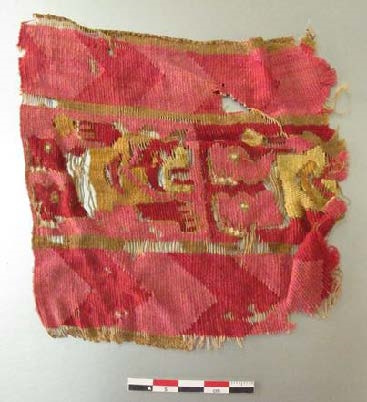
FABRIC
From raw material to finished product: selection of camelid fibers in pre-Hispanic Andean textiles
Scientific responsibility :
- Elise Dufour
- Séverine Zirah
- Christine Lorre
- Nicolas Goepfert
- Thalia Bajon-Bouzid
Methodological axes :
Thematic fields :
Disciplinary sectors :
Funding :
- DIM PAMIR
Project ID : IDF-DIM-PAMIR-2023-4-011
Summary :
Pre-Hispanic Andean textiles are true artworks. They also constitute a unique source of information on the societies which produced them, their social, cultural and ideological history. Their study is often restricted to the description of motifs and weaving methods. However, the cultural choices that presided over the elaboration and the function of textiles (domestic, funerary, power, etc.) also concern the nature and origin of the raw material, and the dyes used to color them. Knowing these parameters would also permit to restore a part of the scientific value to objects from heritage collections that have entered without any attached information. Within FABRIC, the post-doctoral fellow will use innovative approaches in paleoproteomics to study the South American camelid fibers used in the manufacture of Mochica textiles from the northern coast of Peru (AD 100-850). After checking the quality of preservation of the keratins over time, he/she will determine which wild and/or domestic species provided the wool. Depending on the species chosen, the artisans could have used local resources or had to trade with the highlands. Alternatively, the textiles were imported. The sampling of textiles will be done in collaboration with a conservator to be as non-invasive as possible. The textile fibers will be compared with raw materials from museum objects and mummified animal fleeces. He/she will also participate in multispectral photoluminescence imaging for a first non-destructive in situ identification of dyes. This technique will also allow the recognition of the alteration of the original colors which can hamper the interpretation of pattern visual observation.
Post-doctorate: Youri van den Hurk

